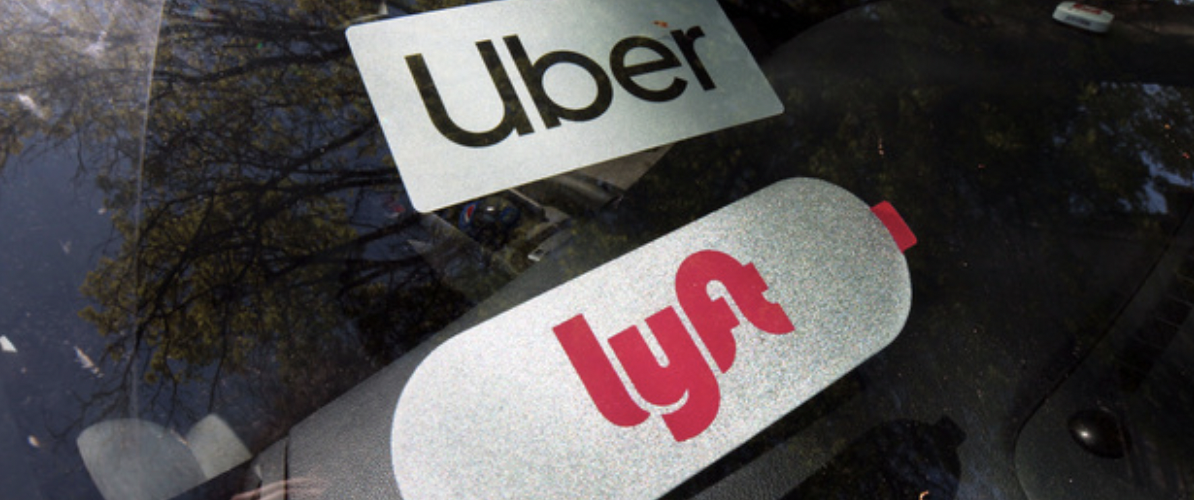Arizona’s next-door neighbor passed Proposition 22 in November 2020, painted by some as an assault on workers’ rights and others as a triumph for app-based contractors and California’s economy.
AB 5, passed by the California legislature and signed into law in 2019, forced freelance workers and independent contractors working for “gig economy” companies — such as DoorDash, Uber, and Lyft — to receive the same benefits as typical employees. This new law pressured these companies either to reimagine their business plan or flee the state, but they found a third way: direct democracy. Proposition 22 reverses AB 5, allowing those who work under the gig economy structure to file legally as contractors rather than employees.
The companies that were proponents of Proposition 22 said that if the measure did not pass they would withdraw from the state, taking thousands of jobs and hundreds of millions of dollars worth of economic productivity with them. They argued that the gig economy is unique because of its freelance contractor formation, allowing people with full-time or part-time careers to make money on the side.
According to Prop 22 opponent Robert Reich, a former U.S. Secretary of Labor and popular left wing economic thinker, “Prop 22 is great for employers, but it’s a huge loss for workers. This will encourage other companies to reclassify their work force as independent contractors, and once they do, over a century of labor protections vanishes overnight.”
Under this proposition there are many changes that will affect workers in the gig economy.
One such change would be that workers are only paid by engaged miles. Engaged miles are considered time spent by the worker after they accept and complete a ride or delivery request is paid, not any time spent waiting for rides or delivery requests while logged on to the app and ready to work. Drivers spend as much as 37 percent of their time logged into a transportation app, but without a passenger.
Current California Law Requirements:
- Clear minimum wage, guaranteed overtime (150% of wages for work over 8 hours in one day, 40 hours in one week)
- All expenses reimbursed (mileage, cell phones, car cleaning, etc) standard rate of which is 57 cents per mile
- No Fault coverage for work-related injuries
- 8 weeks of paid family leave
- Three days of paid leave for illness or care of family–up to 10 in some cities; additional COVID-19 leave in some cities
- Up to 26 weeks of cash unemployment compensation after no-fault job loss
- Lifetime access to wage replacement if injured under disability insurance
- Access to federal health benefits under the Affordable Care Act
- Protection against discrimination based on a broad set of characteristics
- The right to organize and collectively bargain could potentially be created under states law
- Protection from termination or discipline for reporting harassment, discrimination, or wage theft
- Health and safety requirements put in place injury prevention plans and give workers access to sanitation facilities
Under Proposition 22:
- No overtime pay
- Thirty cents per mile, but only mileage expenses for “engaged” miles–find definition of engaged miles
- Limited health coverage, not “no-fault” and is easier for insurers to deny coverage
- No paid family leave
- No paid sick leave
- No unemployment compensation
- Maximum of 104 weeks for disability insurance
- Health insurance is limited and calculated based on “engaged time”
- No explicit protection against discrimination on immigration status
- No right to organize and collectively bargain and under the proposition may only be afforded is the state passes legislation by 7/8ths majority
- No protection from termination or discipline for reporting harassment, discrimination , or wage theft
- No similar health and safety requirement as there is under current California state law
There are also lock-in mechanisms which prevent the repeal or amending of this provision for the near future. In order for the legislature to pass an amendment to the proposition, the legislation has to obtain at least a 7/8th roll call vote in each house. This is essentially a super-supermajority which is largely unprecedented in California politics.
To put this into perspective, the bill’s passage means that in an 80-person assembly, only 10 people have to vote ‘no’ for the amendment to fail. Additionally, any proposed legislation to the law must still be “consistent with, and further the purpose of” the act. This means that three provisions must be upheld: 1) independent contractor status, 2) allows workers to set their own hours and time of work, 3) seeks to promote worker flexibility.
There is a shocking resemblance here to Arizona’s notoriously hard-to-amend direct democracy process.
Proposition 22 was the most expensive initiative in United States history, topping out at over $200 million. With Lyft and Uber getting this win, they had said that they would like to take this policy nationwide.
The Attorney General of California previously sued Uber and similar companies for not providing their drivers with rights and protections like other California businesses, which are required of them under law. It seems that the table has already been turned, however, as some gig workers and unions are taking their fight to the California Supreme Court over Proposition 22. The opponents of the newly passed proposition are alleging that it violates the state constitution and limits the powers of the state legislature to implement worker protections.
Proposition 22 will serve as a warning to progressives across the nation that expanding direct democracy on the state level may not always further left-wing policy agendas.















Add comment